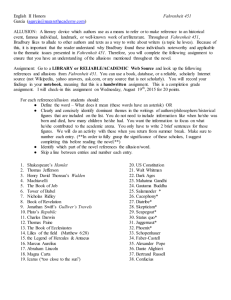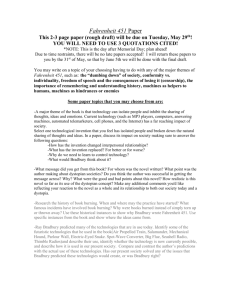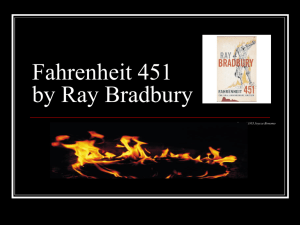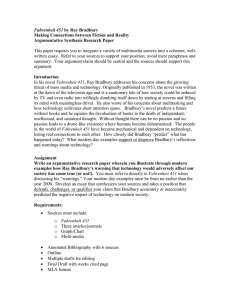What commentary does Fahrenheit 451 make about the impact of technology on society and individuality
advertisement
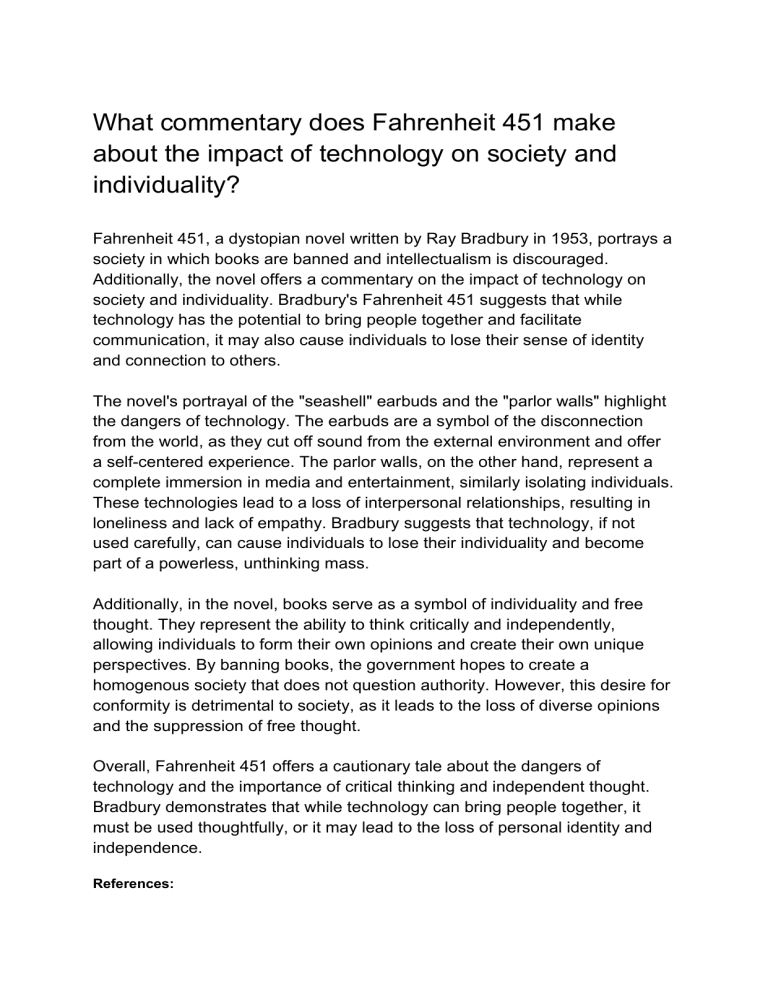
What commentary does Fahrenheit 451 make about the impact of technology on society and individuality? Fahrenheit 451, a dystopian novel written by Ray Bradbury in 1953, portrays a society in which books are banned and intellectualism is discouraged. Additionally, the novel offers a commentary on the impact of technology on society and individuality. Bradbury's Fahrenheit 451 suggests that while technology has the potential to bring people together and facilitate communication, it may also cause individuals to lose their sense of identity and connection to others. The novel's portrayal of the "seashell" earbuds and the "parlor walls" highlight the dangers of technology. The earbuds are a symbol of the disconnection from the world, as they cut off sound from the external environment and offer a self-centered experience. The parlor walls, on the other hand, represent a complete immersion in media and entertainment, similarly isolating individuals. These technologies lead to a loss of interpersonal relationships, resulting in loneliness and lack of empathy. Bradbury suggests that technology, if not used carefully, can cause individuals to lose their individuality and become part of a powerless, unthinking mass. Additionally, in the novel, books serve as a symbol of individuality and free thought. They represent the ability to think critically and independently, allowing individuals to form their own opinions and create their own unique perspectives. By banning books, the government hopes to create a homogenous society that does not question authority. However, this desire for conformity is detrimental to society, as it leads to the loss of diverse opinions and the suppression of free thought. Overall, Fahrenheit 451 offers a cautionary tale about the dangers of technology and the importance of critical thinking and independent thought. Bradbury demonstrates that while technology can bring people together, it must be used thoughtfully, or it may lead to the loss of personal identity and independence. References: Bradbury, R. (1953). Fahrenheit 451. Ballantine Books. Jordynn, J. (2012). From Ray Bradbury’s Fahrenheit 451 to Operation Iraqi Freedom: The Use of Science Fiction in Recent Political Rhetoric. Rhetoric Society Quarterly, 42(2), 115139.

